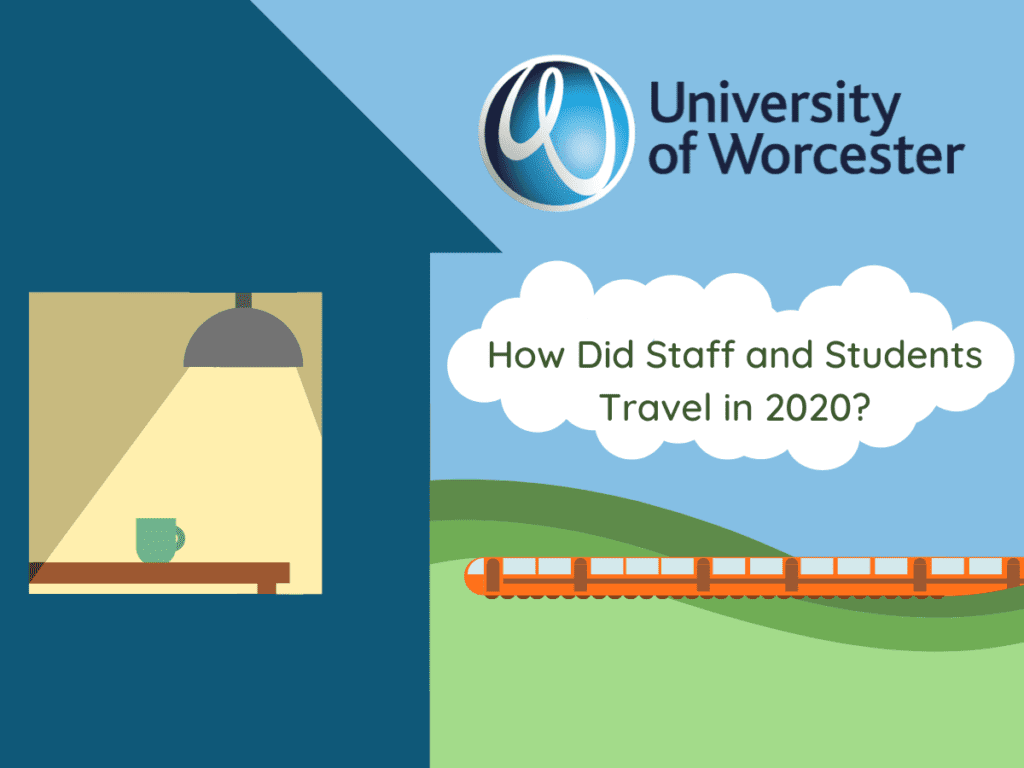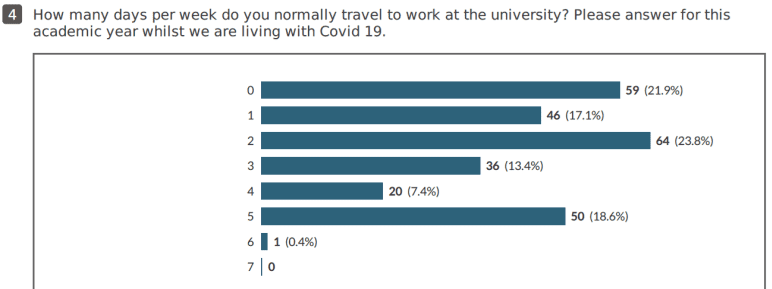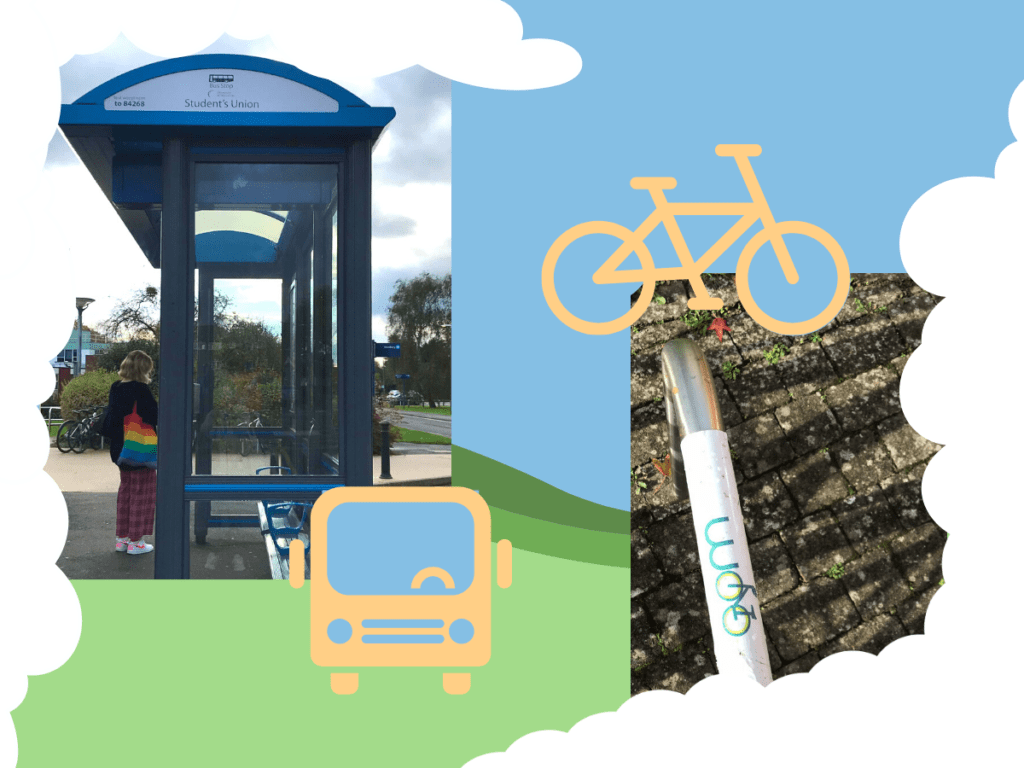How did Covid-19 Affect Staff and Student Travel in 2020? by University of Worcester Digital Creative Assistants, Becky Adams and Amber Horne

How do staff and students of the University of Worcester travel?
Student and staff travel surveys have been conducted to assess the impact of Covid-19 on travel habits. Respondents to the survey were lower than previous years, and direct comparisons to previous years’ results must be treated with caution, due to disruption from the Covid-19 pandemic.
The impact of Covid-19 on staff and student travel
The survey found that the pandemic has changed the way we work, study, and travel. 64% of students lived at home last year, compared to the last survey’s 42%. Students mostly travelled by car for these longer commutes, and drove or walked between campuses. This is consistent with previous surveys. However, there was also a significant increase in train use, up to 28%, from 9%. This is an indication of the change in travel patterns for students.

A fifth of staff did not travel to work at all, again showing the effect of Covid-19 on travel patterns. The chart above shows this. Contrastingly, the number of students who travelled to campus was considerably different this year, as only 19% reported they travelled five days a week. This is down from 62%. Long-distance commutes made by students, and fewer days on campus for staff, show how blended teaching and blocked days for in-person teaching have affected travel habits.
Low uptake of alternatives to car travel
University-sponsored alternatives to car travel have mixed uptake among staff and students. Awareness of the Woo Bike Share scheme increased compared to previous years, particularly among students. However, rising awareness has not translated into the adoption of the scheme, as no respondents used the scheme. The uptake of cycling generally is low, at 2% for students and 9% for staff. Identified barriers to cycling were road safety and weather concerns.

Public transport is one way to travel more sustainably. One-fifth of students used the 31 Bus Route through St Johns Campus, and there was also increased use of the First Bus 10 journey M-Ticket. In contrast, staff were less aware of this, and only one respondent used the academic year-long ticket. It is likely that Covid-19 concerns reduced public transport use. Staff and students suggested that a more frequent bus service and a train station close to campus would encourage them to use public transport.
Rising interest in hybrids and electric cars
Rising interest in hybrids and electric cars was a key insight of the survey. Hybrid and electric cars are a more sustainable choice of vehicle, as they reduce carbon emissions and air pollution. Only one student and four staff currently own a hybrid vehicle. 78% of students and 63% of staff had a small or medium-sized petrol car and 31% of staff had a diesel car. However, almost a third of students and half of staff were considering buying a hybrid or electric vehicle for their next car.

Most respondents wanted the ability to charge electric cars on campus. However, the issue of payment divided opinions; staff and students were divided on whether charging should be free as part of the permit. Though, there was a slight increase in willingness to pay. Long-distance commutes made by students, and fewer days on campus for staff, show how blended teaching and blocked days for in-person teaching have affected travel habits.
Covid-19 has greatly impacted the travel patterns of staff and students at the University of Worcester. It has affected how often we travel to campus, as well as how we travel to campus. It will be interesting to see how travel patterns change this year, as we start to emerge from the Covid-19 pandemic.
Staff and students want to travel more sustainably, however, there are barriers to this. The University of Worcester promotes sustainable travel for students, staff and visitors. Check out the University of Worcester’s travel plan here. For the full report on student and staff travel please read.
